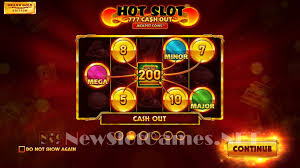Casinos, a term that conjures images of glittering lights, spinning roulette wheels, and the allure of striking it rich, have a fascinating history that spans centuries. From their humble beginnings as small, private clubs in Europe to the sprawling entertainment complexes they are today, casinos have evolved into a global phenomenon. This article explores the history, cultural significance, economic impact, and modern developments in the world of slot 777.
Historical Background
The concept of gambling is ancient, with evidence of rudimentary games of chance dating back thousands of years. However, the first formal casino as we might recognize it today was established in Venice, Italy, in 1638. Known as the Ridotto, it was a government-sanctioned venue designed to provide controlled gambling during the carnival season. The idea quickly spread across Europe, with similar establishments appearing in France and Germany.
By the 19th century, casinos had become fixtures of European social life. The Casino de Monte-Carlo, opened in 1863, remains one of the most famous gambling venues in the world, attracting the elite from across the globe. As European immigrants arrived in America, they brought their love of gambling with them, setting the stage for the development of casinos in the United States.
The Rise of Las Vegas
The modern casino industry took a significant leap forward in the mid-20th century with the rise of Las Vegas. In 1931, Nevada became the first state to legalize casino gambling, paving the way for the development of what would become the world’s most famous gambling destination. The construction of the Hoover Dam during the Great Depression brought thousands of workers to the area, and entrepreneurs quickly saw an opportunity to cater to them.
Las Vegas soon became synonymous with casinos, attracting visitors with its blend of gambling, entertainment, and luxury. Iconic venues like the Flamingo, Caesars Palace, and the Bellagio helped establish the city as a global entertainment hub. The success of Las Vegas inspired the development of casino resorts in other parts of the world, including Atlantic City, New Jersey, and Macau, China.
Cultural Significance
Casinos have played a significant role in shaping popular culture. From the glitz and glamour portrayed in Hollywood films to the portrayal of high-stakes poker games in literature, casinos have captured the imagination of people worldwide. Movies like “Casino,” “Ocean’s Eleven,” and “James Bond” films have romanticized the casino experience, emphasizing the thrill, risk, and potential for reward.
Beyond entertainment, casinos have also influenced fashion, architecture, and even language. The term “poker face” has become a common expression, and the design of casinos, with their opulent interiors and grandiose facades, has inspired architectural trends in other industries.
Economic Impact
Casinos are significant economic drivers, contributing to the economy in multiple ways. They generate substantial revenue through gaming, hotel accommodations, dining, entertainment, and retail. In many regions, casinos also create jobs, from dealers and waitstaff to managers and security personnel. This economic impact extends to local businesses, as casinos often attract tourists who spend money in nearby shops, restaurants, and other attractions.
However, the economic impact of casinos is a subject of debate. Critics argue that while casinos create jobs and revenue, they can also lead to social problems such as gambling addiction, crime, and financial hardship for individuals who gamble irresponsibly. Additionally, some studies suggest that casinos may cannibalize other forms of entertainment spending, leading to a net neutral or even negative impact on the local economy.
The Modern Casino Industry
The casino industry has continued to evolve in the 21st century, adapting to changing consumer preferences and technological advancements. One of the most significant developments has been the rise of online casinos. These digital platforms allow people to gamble from the comfort of their own homes, offering a wide range of games, including slots, poker, and blackjack. The convenience and accessibility of online casinos have expanded the industry’s reach, attracting a new generation of players.
In addition to online gambling, the industry has seen the integration of technology into traditional casino operations. For example, electronic table games, virtual reality experiences, and mobile apps are becoming increasingly common in brick-and-mortar casinos. These innovations aim to enhance the gaming experience and attract younger, tech-savvy customers.
Another trend in the modern casino industry is the diversification of offerings. Many casinos now function as all-in-one entertainment destinations, featuring luxury hotels, fine dining, shopping, spas, and live performances. This shift reflects a broader trend in the hospitality industry, where experiences are increasingly valued over mere transactions.
Conclusion
Casinos have come a long way from their origins in 17th-century Europe to become a global industry with a profound cultural and economic impact. Whether in the form of grand resorts like those in Las Vegas or virtual platforms accessible from anywhere in the world, casinos continue to captivate and entertain millions. However, the industry also faces challenges, including the need to address social concerns and adapt to a rapidly changing technological landscape. As casinos evolve, they will undoubtedly remain a central part of the entertainment industry for years to come.



